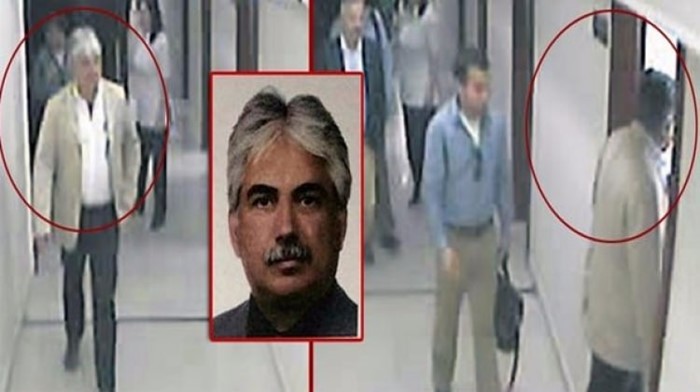Turkish Justice Minister Abdülhamit Gül on Sunday reacted to a US demand for the return of the seized mobile phone of Metin Topuz, a Turkish staff member of the US Consulate General in İstanbul who was arrested on Oct. 4 on espionage charges, the state-run Anadolu news agency reported.
US authorities sent a diplomatic note to Turkey on Oct. 10 demanding the return of Topuz’s seized mobile phone, the Hürriyet daily reported on Saturday.
Confirming the official US demand, Minister Gül said: “We have forwarded the document to the office of the prosecutor who launched the investigation. They will decide.”
“It [the US document] says ‘despite the fact that the mobile belongs to the person [Metin Topuz], he uses it for our affairs.’ It seems that this demand might extend to this point: ‘Although the person is a Turkish citizen, he was used for our affairs. Hand him over to us’ — a process that starts with a mobile and extends to the person,” said Gül.
The diplomatic note said information and data on Topuz’s phone and its SIM card were within the diplomatic immunity of the consulate as per the 33rd article of the Vienna Convention.
“This is the first time I’ve seen the immunity of a mobile phone,” said the Turkish minister.
According to Hürriyet, a document sent to the Justice Ministry by the Foreign Ministry’s directorate of consular affairs shows that the US sent a diplomatic note to Turkey and stated that Topuz’s mobile phone belonged to the consulate, demanding its immediate return.
Topuz was detained on Sept. 25 and arrested on Oct. 4 on espionage charges, prompting a diplomatic crisis between Washington and Ankara.
Topuz’s arrest led Washington to suspend all non-immigrant visa services at diplomatic missions in Turkey, which was immediately followed by a reciprocal move by the Turkish Embassy in Washington to suspend visa applications from the US on Oct. 8.
Turkey accuses Topuz of links to police officers who are sympathizers of the Gülen movement, which blamed by Turkish authorities for a failed coup last year.
Speaking to a group of journalists in İstanbul on Oct. 6, outgoing US Ambassador to Turkey John Bass said some in the Turkish government were motivated by “vengeance rather than justice,” voicing concern at coverage in pro-government media outlets of the arrest of Topuz.
US Secretary of State Rex Tillerson had waited for three days before calling his Turkish counterpart, Mevlüt Çavuşoğlu, in response to a message sent by Çavuşoğlu regarding the visa crisis.
Ambassador Bass said in a video message released late on Oct. 9 that Turkish authorities had failed to show any evidence against Topuz and that he had insufficient access to a lawyer. He also said the arrest “raised questions whether the goal of some officials is to disrupt the long-standing cooperation between Turkey and the US.”
Ties between the two NATO allies were already strained over Pennsylvania-based Turkish Islamic scholar Fethullah Gülen’s presence in the US and Washington’s support for a Syrian Kurdish militia that Turkey considers to be terrorist because of its links to outlawed Kurdistan Workers’ Party (PKK) militants fighting Turkey.
Also, indictments in the US naming bodyguards of President Recep Tayyip Erdoğan who were engaged in violence in Washington and for the manager of the state-run Halkbank and a former Turkish economy minister accused of conspiring to violate US sanctions on Iran had deepened the rift.


